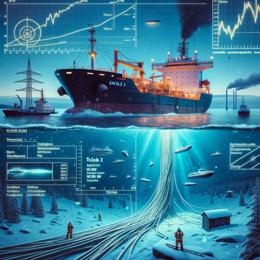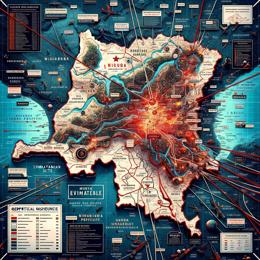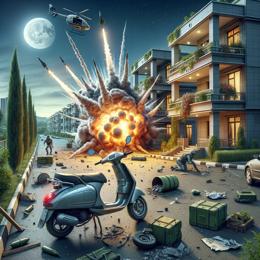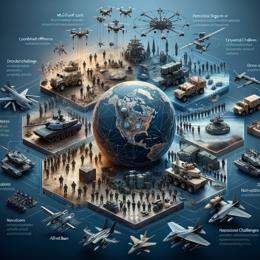Image created by AI
France’s Macron Leaves Door Open for Potential European Troop Deployment to Ukraine
French President Emmanuel Macron has expressed that while European ground forces in Ukraine are not currently on the agenda, the option remains on the table. This statement followed a high-level meeting in Paris where European leaders banded together, demonstrating strong support for Ukraine amidst its protracted conflict with Russia, now casting its shadow into the third year.
The Paris conference, a testament to Macron's assertiveness in upholding Ukraine's interests within Europe, played host to a bevy of European luminaries including German Chancellor Olaf Scholz and Polish President Andrzej Duda, with Ukrainian President Volodymyr Zelenskyy participating virtually. The discussions laid bare the divide among European nations on the contentious subject of deploying troops to the Ukrainian battlefield.
Despite Macron's openness, he abstained from specifying which countries may be considering such a military movement, emphasizing a strategy of "strategic ambiguity". Meanwhile, across the Atlantic, a White House official articulated that the United States had not set any plans to insert troops into the fray, paralleling NATO's stance.
Poland's Duda relayed the lack of agreement on the matter. Opinions on troop deployment spanned from supportive to staunchly opposed, encapsulating the diversity of stances within Europe and underscoring the complexity of consensus. Slovak Prime Minister Robert Fico, representative of the opposition camp, acknowledged the presence of NATO and EU members contemplating unilateral troop contributions to Ukraine.
The assembly was also an opportunity to address Ukraine's urgent need for ammunition, a growing concern as setbacks intensified in the east. An initiative led by Czech Prime Minister Petr Fiala pushed forward a plan to procure substantial counts of ammunition, an initiative supported by around 15 countries. This move dovetails with EU's already delayed goal of supplying Ukraine with a million rounds by March.
The Netherlands, represented by Prime Minister Mark Rutte, vowed a substantial monetary contribution towards external munitions acquisitions, while the suppliers remained anonymous.
In a significant announcement, Macron unveiled plans for a new coalition aimed at providing Ukraine with medium and long-range missiles and bombs, essential for deeper strategic strikes. Consensus emerged around enhancing joint weaponry production and empowering Ukraine's military industry. This move, critical for Ukraine's defense, aligns with recent long-term commitments made by France, Germany, and the UK backing Ukraine's resilience and determination.
As the international diplomatic and military landscapes shift with the evolving Ukrainian conflict, Europe's deliberations underscore the strategic, moral, and economic complexities in confronting the aggression posed by Russia, all while navigating the intricate terrains of international alliances and partnerships.










